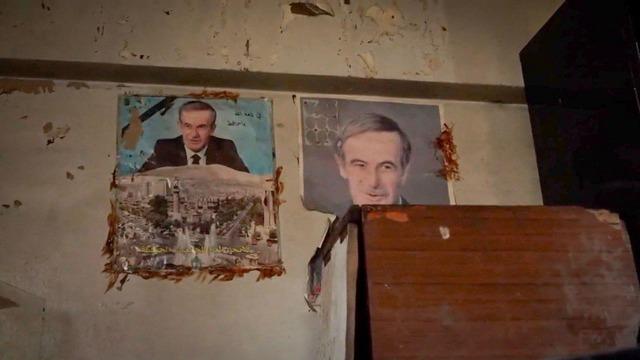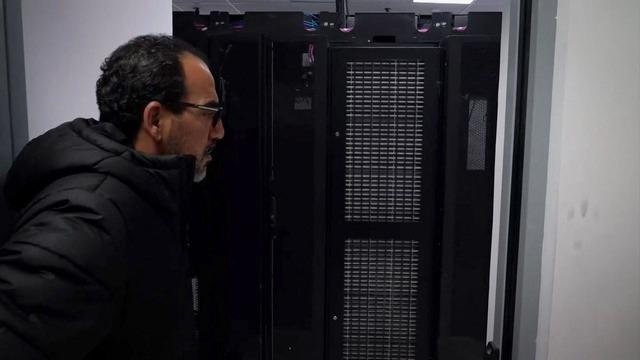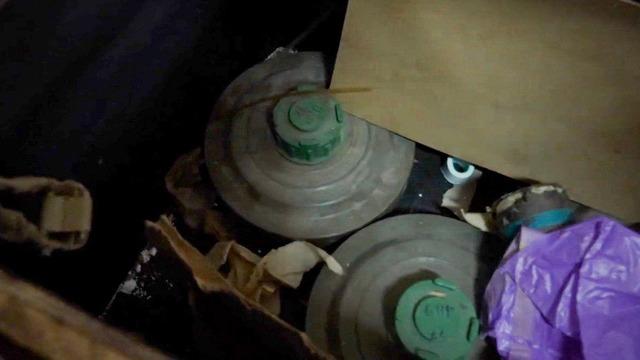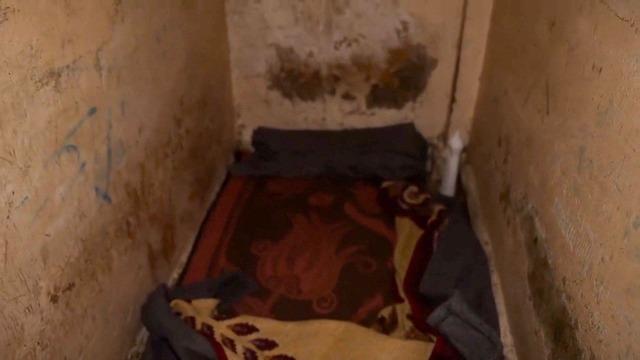BBC Arabic Correspondent Feras Kilani entered a secret underground section of the old regime where Syrians were detained and tortured. This is a world that few outsiders manage to enter.
In the basement of the Syrian State Security headquarters, we have found a frightening segment of the secret intelligence network that has kept the country’s ruthless leadership in power for decades.
SMALL CELLS WITHOUT LIGHT
There were rows of small cells, each with thick steel doors, where the detained were kept.
The only light coming in here was the sun’s rays, which could filter through the grilles at the top of the walls.
Detainees could be kept in these cells for months while being interrogated and tortured.
They were just below street level in the busy Kafr Sousa neighborhood in central Damascus, where the intelligence headquarters is located.
Every day, thousands of ordinary Syrians went about their daily lives just meters away from where their citizens were detained and tortured.
PILES OF FILES CAUGHT ATTENTION
In one hallway, along with tattered pictures of the ousted president, were stacks of files used by the nation’s intelligence agencies to spy on millions of people.
After being held temporarily there, prisoners were taken to longer-term detention centers outside the capital, such as Saydnaya Prison.
This was just one part of the huge network held by the former Syrian administration.

The independent monitoring group Syrian Network for Human Rights (SNHR) recorded 15,102 deaths as a result of torture in the country’s prisons from the beginning of the rebellion against Assad in 2001 until last July.
According to the organization’s estimate in August, more than 130 thousand people were either arrested or in forced detention.
Amnesty International says the former Syrian government used torture and forced disappearances to suppress dissent for decades. He also describes Syrian intelligence as “unaccountable”.

By walking a few hundred meters from the State Security headquarters, we reach the General Intelligence Directorate, another of the country’s intelligence agencies.
Opponents of Assad’s rule say the agency is among those spying on every detail of people’s daily lives.
Inside we find a computer room. The floors and walls are white, and rows of data storage devices operate silently.
Power is out in much of Damascus, but this facility is considered so important that it has its own power supply.
Despite digital systems, there are also huge numbers of paper documents. They all look solid.
The files are placed in metal cabinets lining the walls of one room. In another room, rows of notebooks are piled up from floor to ceiling.
Those working here don’t seem to have had a chance to destroy anything before escaping as the regime collapsed.
Records go back years. Nothing has been destroyed. We even find boxes filled with spent bullet casings.

In another section there are weapons, including mortars and mines.
We have with us a fighter from HTS, the militant Islamist organization that took control of Damascus. I ask why the guns are here.
He says that during the Assad regime’s cooperation with Russia, “all state institutions were turned into a headquarters for a war mat and to put pressure on the Syrian people.”
The mountains of documents and computer records held by the General Intelligence Directorate may play an important role in the future investigation of those responsible for the detention and torture of Syrian citizens.
HTS leader Ahmed al Shara, also known as Abu Muhammad al Colani, said in his written statement published by Reuters News Agency that those responsible for the torture and killing of prisoners during the Assad rule will be found and that amnesty is out of the question.
Shara said in her message on Telegram: “We will follow them in Syria and we will ask for the extradition of those who escaped from the countries they went to so that justice can be served.”
CONSEQUENCES MAY CROSS COUNTRY BORDERS
However, the consequences of the collapse of the Syrian security network could extend beyond the country’s borders.
We also found numerous files linked to Jordan, Lebanon and Iraq.
If these documents were made public and revealed the relationships between key figures in these countries and Assad’s security agencies, an entire region could be shocked.
